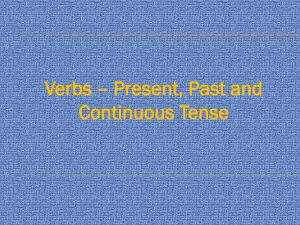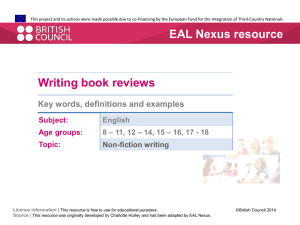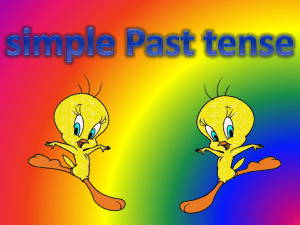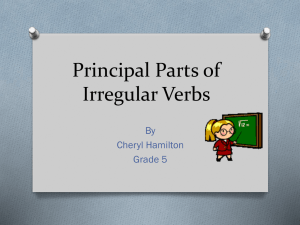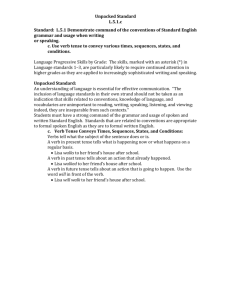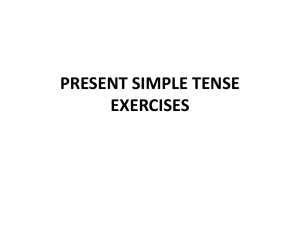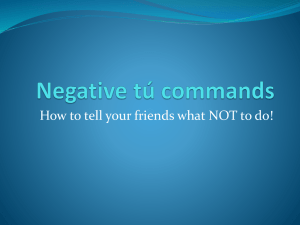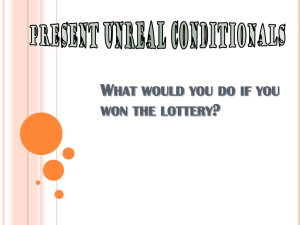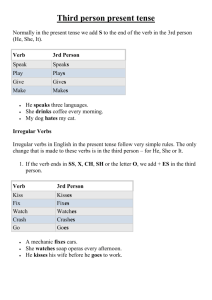Mentor Passage Lesson - Water for Elephants
advertisement
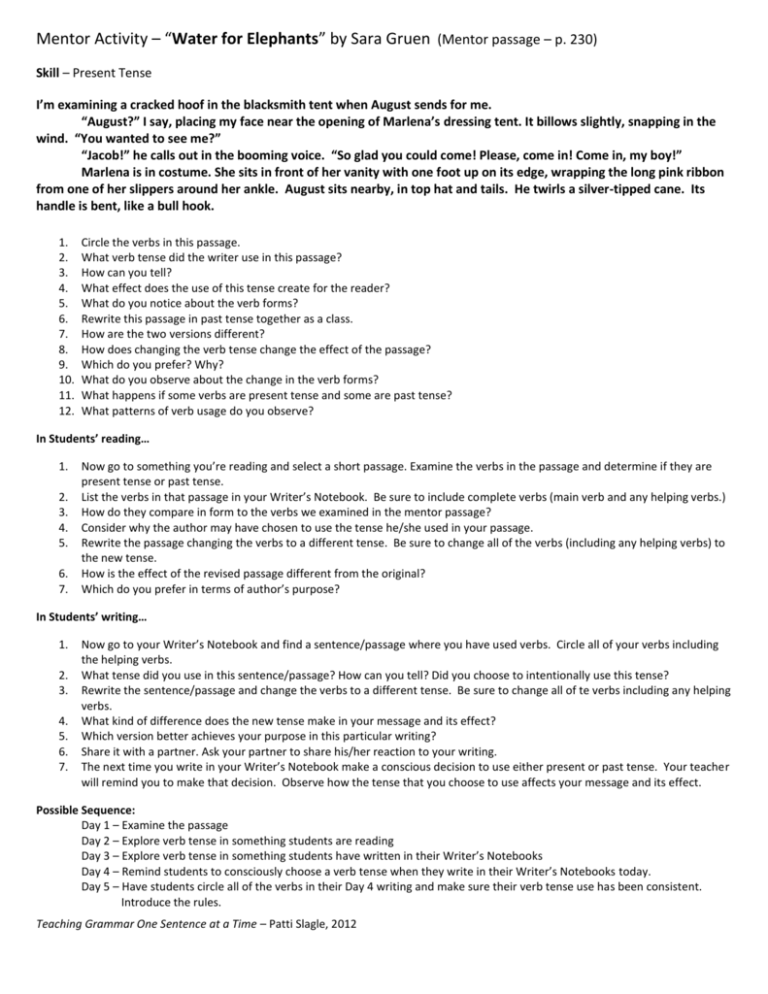
Mentor Activity – “Water for Elephants” by Sara Gruen (Mentor passage – p. 230) Skill – Present Tense I’m examining a cracked hoof in the blacksmith tent when August sends for me. “August?” I say, placing my face near the opening of Marlena’s dressing tent. It billows slightly, snapping in the wind. “You wanted to see me?” “Jacob!” he calls out in the booming voice. “So glad you could come! Please, come in! Come in, my boy!” Marlena is in costume. She sits in front of her vanity with one foot up on its edge, wrapping the long pink ribbon from one of her slippers around her ankle. August sits nearby, in top hat and tails. He twirls a silver-tipped cane. Its handle is bent, like a bull hook. 1. 2. 3. 4. 5. 6. 7. 8. 9. 10. 11. 12. Circle the verbs in this passage. What verb tense did the writer use in this passage? How can you tell? What effect does the use of this tense create for the reader? What do you notice about the verb forms? Rewrite this passage in past tense together as a class. How are the two versions different? How does changing the verb tense change the effect of the passage? Which do you prefer? Why? What do you observe about the change in the verb forms? What happens if some verbs are present tense and some are past tense? What patterns of verb usage do you observe? In Students’ reading… 1. 2. 3. 4. 5. 6. 7. Now go to something you’re reading and select a short passage. Examine the verbs in the passage and determine if they are present tense or past tense. List the verbs in that passage in your Writer’s Notebook. Be sure to include complete verbs (main verb and any helping verbs.) How do they compare in form to the verbs we examined in the mentor passage? Consider why the author may have chosen to use the tense he/she used in your passage. Rewrite the passage changing the verbs to a different tense. Be sure to change all of the verbs (including any helping verbs) to the new tense. How is the effect of the revised passage different from the original? Which do you prefer in terms of author’s purpose? In Students’ writing… 1. 2. 3. 4. 5. 6. 7. Now go to your Writer’s Notebook and find a sentence/passage where you have used verbs. Circle all of your verbs including the helping verbs. What tense did you use in this sentence/passage? How can you tell? Did you choose to intentionally use this tense? Rewrite the sentence/passage and change the verbs to a different tense. Be sure to change all of te verbs including any helping verbs. What kind of difference does the new tense make in your message and its effect? Which version better achieves your purpose in this particular writing? Share it with a partner. Ask your partner to share his/her reaction to your writing. The next time you write in your Writer’s Notebook make a conscious decision to use either present or past tense. Your teacher will remind you to make that decision. Observe how the tense that you choose to use affects your message and its effect. Possible Sequence: Day 1 – Examine the passage Day 2 – Explore verb tense in something students are reading Day 3 – Explore verb tense in something students have written in their Writer’s Notebooks Day 4 – Remind students to consciously choose a verb tense when they write in their Writer’s Notebooks today. Day 5 – Have students circle all of the verbs in their Day 4 writing and make sure their verb tense use has been consistent. Introduce the rules. Teaching Grammar One Sentence at a Time – Patti Slagle, 2012
